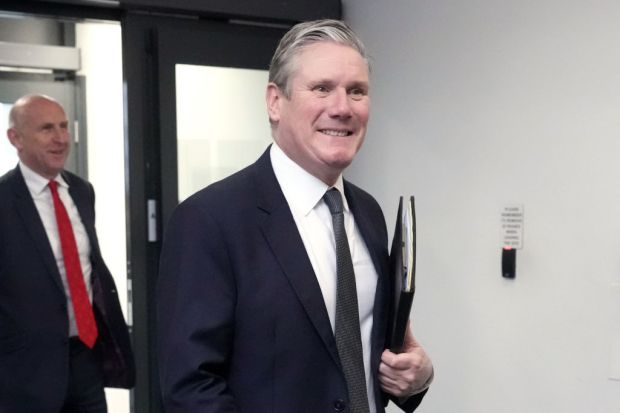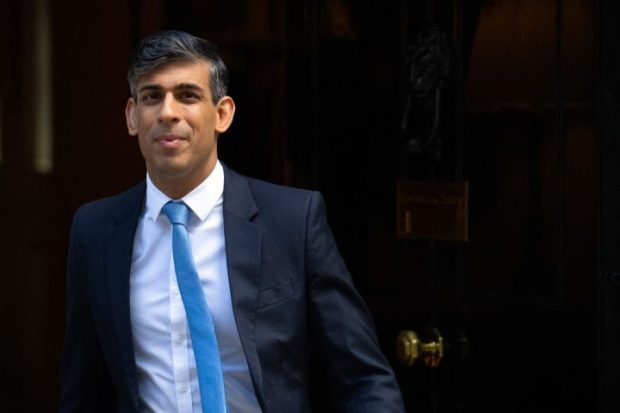The Privileges Committee has published its report on whether Boris Johnson deliberately misled parliament over partygate. It is damning.
The 30,000-word document finds that he committed multiple contempts of parliament, including deliberately misleading the house, deliberately misleading the committee, breaching confidence, impugning the committee and the democratic process of the house and ‘being complicit in the campaign of abuse and attempted intimidation of the committee’.
The committee, consisting of seven MPs including four Tories, had to update its conclusions after Johnson resigned, saying that it would have recommended a 90-day suspension of the former prime minister. But it has now recommended that he should not be granted a former members’ pass. This punishment seems to have increased as a result of the response from Johnson to the inquiry and its conclusions: it is not just about the initial offences where he told MPs that he had been assured that the guidance had been followed at all times.
The key section in the report concerns Johnson’s attitude to the inquiry itself
When it comes to that initial incident of misleading the House, the committee rests heavily on the evidence from his former press secretary Jack Doyle and private secretary Martin Reynolds. The report concludes that this evidence shows that Johnson did not receive the level of assurance that rules and guidance had been followed at all times. It points out that:
‘Doyle has stated that he did not discuss whether any gatherings had been compliant with Covid guidance, as opposed to Covid rules, and did not advise Mr Johnson to say No. 10 had complied with Covid guidance at all times.’
Reynolds also told the Committee that he had ‘questioned whether it was realistic to argue that all guidance had been followed at all times, given the nature of the working environment in No. 10’ and that ‘he agreed to delete the reference to guidance’.
But the Committee then says that, despite this, ‘we note that Johnson subsequently on at least three occasions asserted in broad terms that guidance had been followed’. It then says that his evidence to the committee say Johnson ‘downplay the significance and narrow the scope of the assertions he made to the House’, which was directly at odds with the overall impression Members of the House, the media and the public received at the time from Mr Johnson’s responses at PMQs’.
But the key section in the report concerns Johnson’s attitude to the inquiry itself, saying that he had ‘sought to re-write the meaning of the rules and guidance to fit his own evidence’. The Committee says it ‘came to the view that some of Mr Johnson’s denials and explanations were so disingenuous that they were by their very nature deliberate attempts to mislead the Committee and the House, while others demonstrated deliberation because of the frequency with which he closed his mind to the truth’. He is also accused of breaching confidentiality by making a public statement about the report last week which was ‘in itself a very serious contempt’.
There was an attempt last night by Labour MP Yvonne Fovargue and SNP Allan Dorans to change the recommended 90-day suspension to a full expulsion from the House, but the Committee was divided on this and it was voted down 4-2.
Johnson has described the report as ‘deranged’ and a ‘lie’, claiming it is a ‘dreadful day for democracy. He and his allies have been very keen to paint the Committee as being biased against him from the outset. He has also wanted to portray the Tory majority among its members as being illusory because those Tories are, in one way or another, anti-him.
The implication of this is that the House of Commons shouldn’t govern itself and MPs shouldn’t be expected to act with integrity when sitting on these committees. It is curious that Johnson has only started making this case for what would be a major piece of reform of the way Westminster works when he is the one under judgement. Because the Committee has escalated its sanctions in response to his attitude in recent days, and because Johnson himself is escalating his own language in response to the report, this row is turning into a cyclone which threatens to damage everything in its path. Johnson may never return to parliament – or he might – but the consequences of the inquiry and the way he has attacked it will last for a very long time.
Got something to add? Join the discussion and comment below.
Get 10 issues for just $10
Subscribe to The Spectator Australia today for the next 10 magazine issues, plus full online access, for just $10.





















Comments
Don't miss out
Join the conversation with other Spectator Australia readers. Subscribe to leave a comment.
SUBSCRIBEAlready a subscriber? Log in